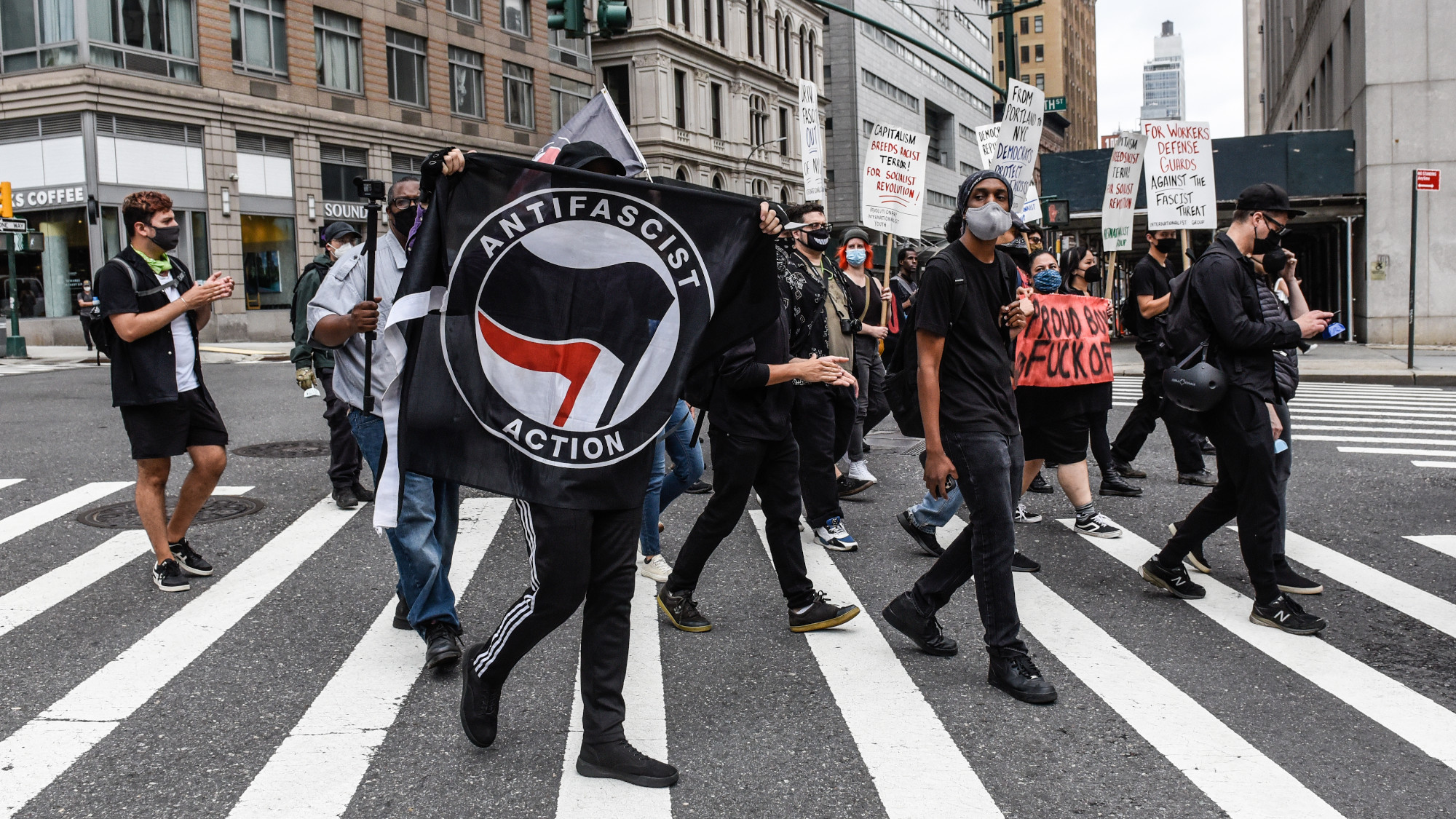Antifa: A useful right-wing bogeyman?
Trump signs executive order labeling antifa a “domestic terrorist” group

A free daily email with the biggest news stories of the day – and the best features from TheWeek.com
You are now subscribed
Your newsletter sign-up was successful
Donald Trump wants to crack down on “a group that doesn’t actually exist,” said Edith Olmsted in The New Republic. The president signed an executive order this month designating antifa—short for anti-fascist—as a “domestic terrorist organization,” citing its supposed “armed standoffs with law enforcement” and “organized riots.” There are a couple of problems with this. The first is that antifa is not a cohesive organization but rather a loose, leaderless ideology that brings together various individuals and groups under the banner of opposing fascism. Then there’s the fact that U.S. law allows only foreign groups to be designated as terrorist organizations. The domestic terror designation might legally “be a flop,” but it still has its uses, said Matt Sledge in The Intercept. Anti-Trump protesters might stay home out of fear of being labeled terrorists. And the order also threatens the prosecution of those who finance antifa, hinting at how the administration might target progressive mega-donors such as George Soros, who Trump accused without evidence of funding violence following the murder of conservative activist Charlie Kirk.
Yes, the Trump administration should “smash” antifa, said National Review in an editorial. Mask-wearing thugs marching under the antifa flag have caused mayhem in Atlanta; Portland, Ore.; and other cities in recent years, breaking storefronts, torching police cars, and beating up counter-protesters or those they deem right-wing. But the domestic terror label is “pointless.” Federal law enforcement already has the legal tools and justification to go after “loosely knit groups” of criminals, which is what this “pathetic” faux-paramilitary organization really is. “We’ve seen what happens” when political leaders obsess over “supposed domestic political threats: You get cock-up investigations” in which FBI agents and informers entrap people into phony terrorist plots. Investigators should stick to our already ample law code.
That seems unlikely with the White House intent on stirring up “anti-antifa panic” while ignoring violent right-wing extremism, said Christopher Mathias in MSNBC.com. The Justice Department last week “quietly removed a study online that showed far-right extremists commit ‘far more’ fatal violence than those on the far left.” And the White House’s mass deportation campaign has reportedly “diverted FBI agents from monitoring and prosecuting far-right groups.” It seems the Trump administration’s real problem isn’t “so much the scourge of political violence but who gets to commit it.”
The Week
Escape your echo chamber. Get the facts behind the news, plus analysis from multiple perspectives.

Sign up for The Week's Free Newsletters
From our morning news briefing to a weekly Good News Newsletter, get the best of The Week delivered directly to your inbox.
From our morning news briefing to a weekly Good News Newsletter, get the best of The Week delivered directly to your inbox.
A free daily email with the biggest news stories of the day – and the best features from TheWeek.com